The TIME100 Impact Awards and Leadership Forum on Sunday buzzed with excitement—and it wasn’t just from the events inside the National Gallery Singapore. Bass blared from The Kid Laroi’s concert across the street, shaking the floor and the large glass windows, which offered panoramic views of the weekend’s Formula 1 Grand Prix racetrack and surrounding entertainment.
The evening-long events brought together some of the world’s greatest minds in business, technology and entertainment—including Bollywood actor and producer Alia Bhatt, who was one of four new TIME100 Impact Award recipients.
“There’s no greater impact than being yourself,” Bhatt told a packed room. She went on to tell the crowd about her bad spelling and terrible navigation skills—in an effort to dispel the illusion of perfection. “Because at the end of the day, it’s the imperfections that make a character compelling,” she said.
The TIME100 Impact Awards followed the inaugural TIME100 Leadership Forum, an intimate late afternoon panel bringing together CEOs and other innovative thinkers. Speakers included Eric Schmidt, former Google CEO and Schmidt Futures co-founder; Piyush Gupta, the CEO of DBS; Sandhya Sriram, Shiok Meats Group CEO, chairman and co-founder; Neeraj Aggawal, BCG’s Asia Pacific chairman; Neo Gim Huay, World Economic Forum managing director and head of the Center for Nature and Climate; and Ari Sarker, Mastercard’s president for Asia Pacific.
Hundreds gathered for the TIME events as crowds thronged for the F1 race just outside. “I’m so delighted that the center of the universe is shifting from New York to here in Singapore,” said Sarker. “It really talks about the rise of Asia.”
The TIME100 Leadership Forum and TIME100 Impact Awards in Singapore were produced by TIME in partnership with the Singapore Economic Development Board, the Singapore Tourism Board, Mastercard, BCG, and Concha Y Toro.
Here are the biggest moments from the TIME100 Impact Awards and the TIME100 Leadership Forum.
Eric Schmidt on what terrifies him about technology
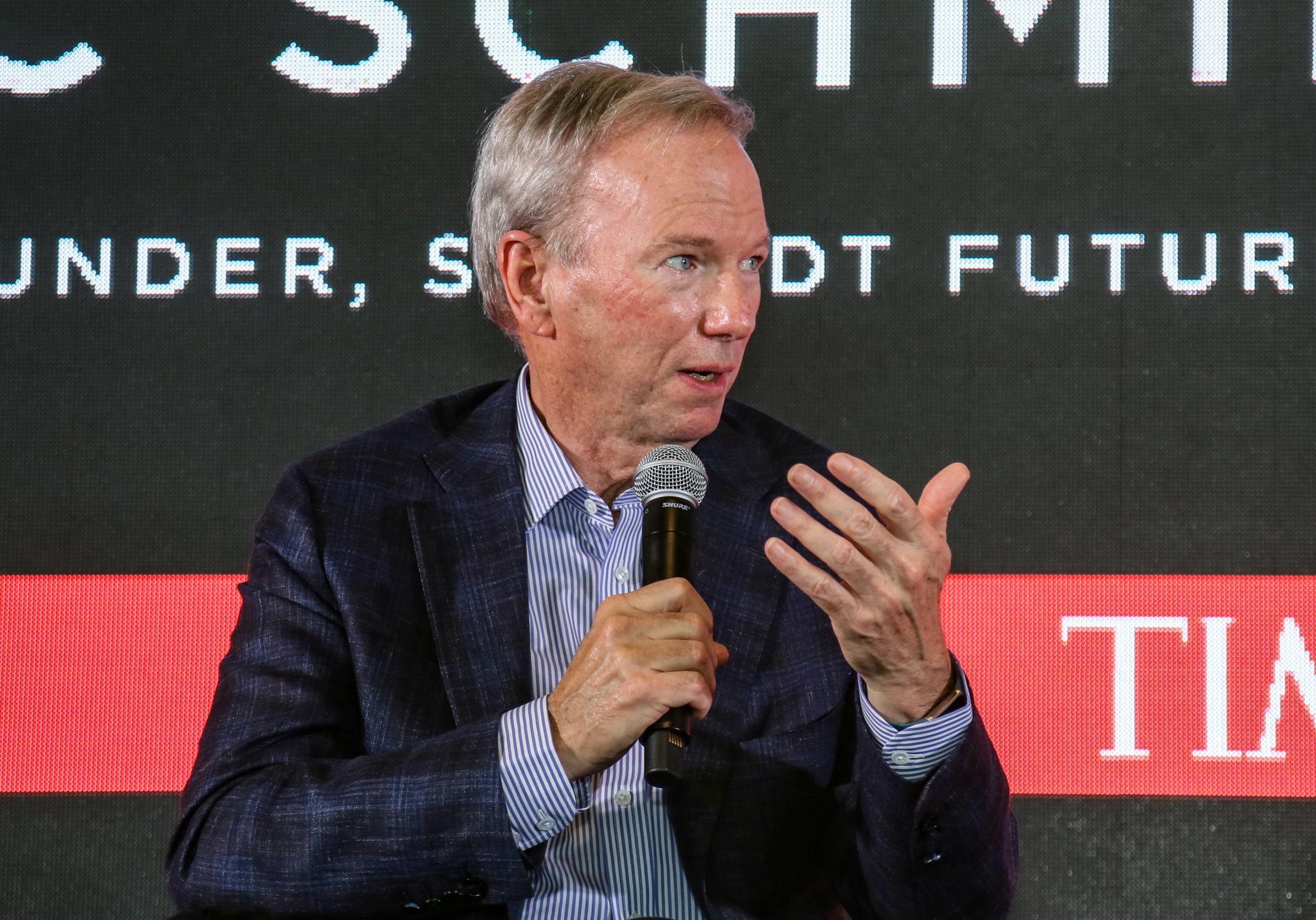
The former Google CEO Eric Schmidt told the crowd that the biggest risks in technological innovation will come not from the “killer robot” of blockbuster Hollywood movies but the weaponization of artificial intelligence. “I believe that algorithms will appear over the next five or so years that will allow you to stitch together very, very bad viruses,” he said, alluding to the possibility of a future man-made pandemic. While AI will no doubt increase productivity and innovation, it will, at times, get things wrong. For this reason, Schmidt said, we should be wary of using AI to make decisions in war and conflict.
While the technologist-turned-philanthropist was skeptical of the efficacy of regulation alone in combating online disinformation and hate speech, he said that tech companies shouldn’t be left entirely to their own devices. “The problem with self regulation is, at the end of the day, you’re revenue driven, so you’ll make the wrong trade off,” he said.
Shiok Meats CEO talks diversity
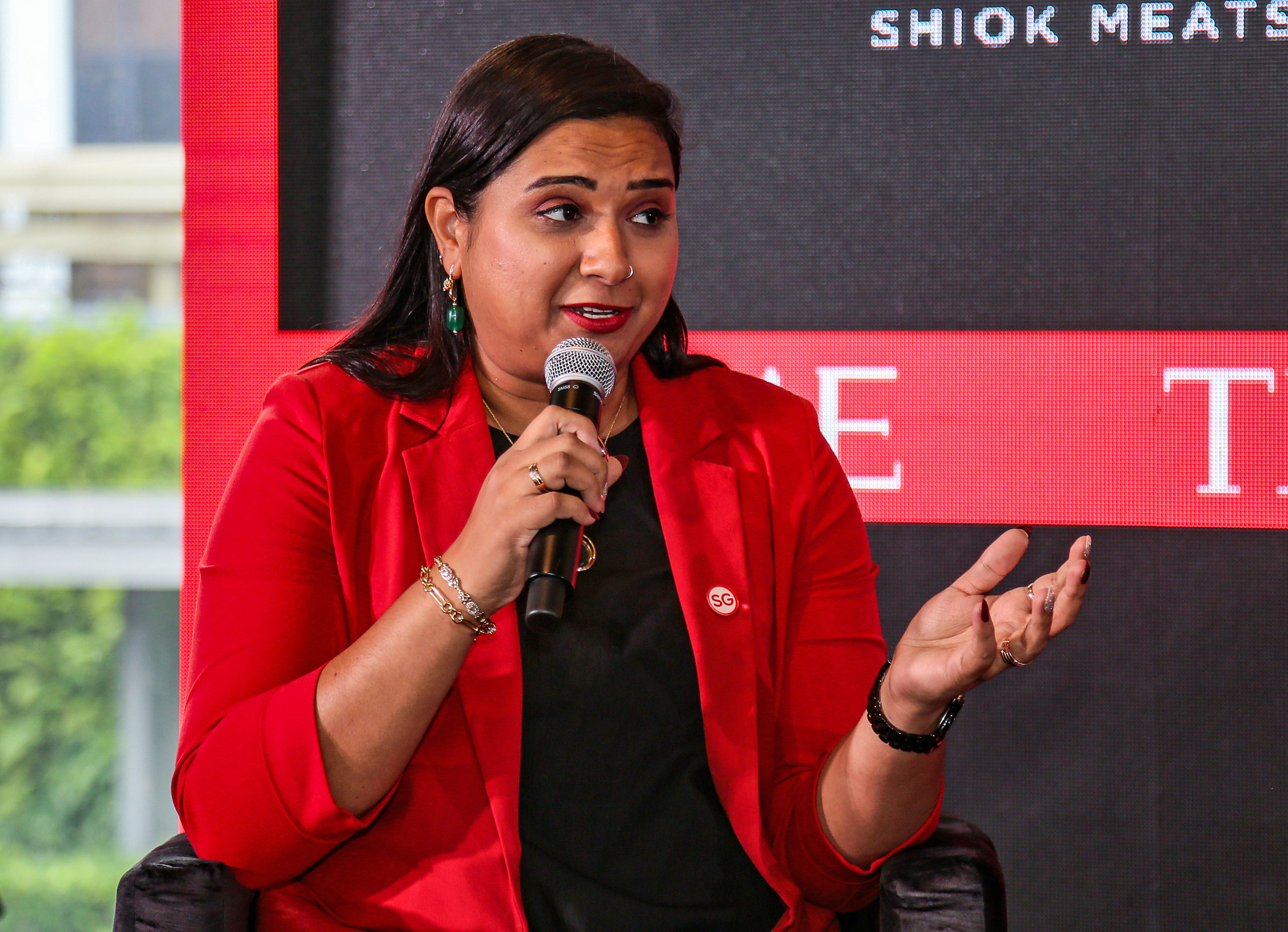
Sandhya Sriram, a stem-cell scientist who calls herself an accidental entrepreneur after starting Singapore-based cultivated seafood company Shiok Meats Group, earned some of the biggest laughs of the evening while discussing the power of the all-female C-suite at her company. She said she thinks it’s important to have a wide range of views when discussing topics like parental leave. “So we are in the midst of hiring a ‘diversity male,’” she quipped.
“We are a 70% woman company. All the C-suite is women, there are a majority of women on the board,” she said. Although it wasn’t by design, she explained, they’ve had many capable women applying to the company.
DBS CEO Piyush Gupta says the green transition will get a boost
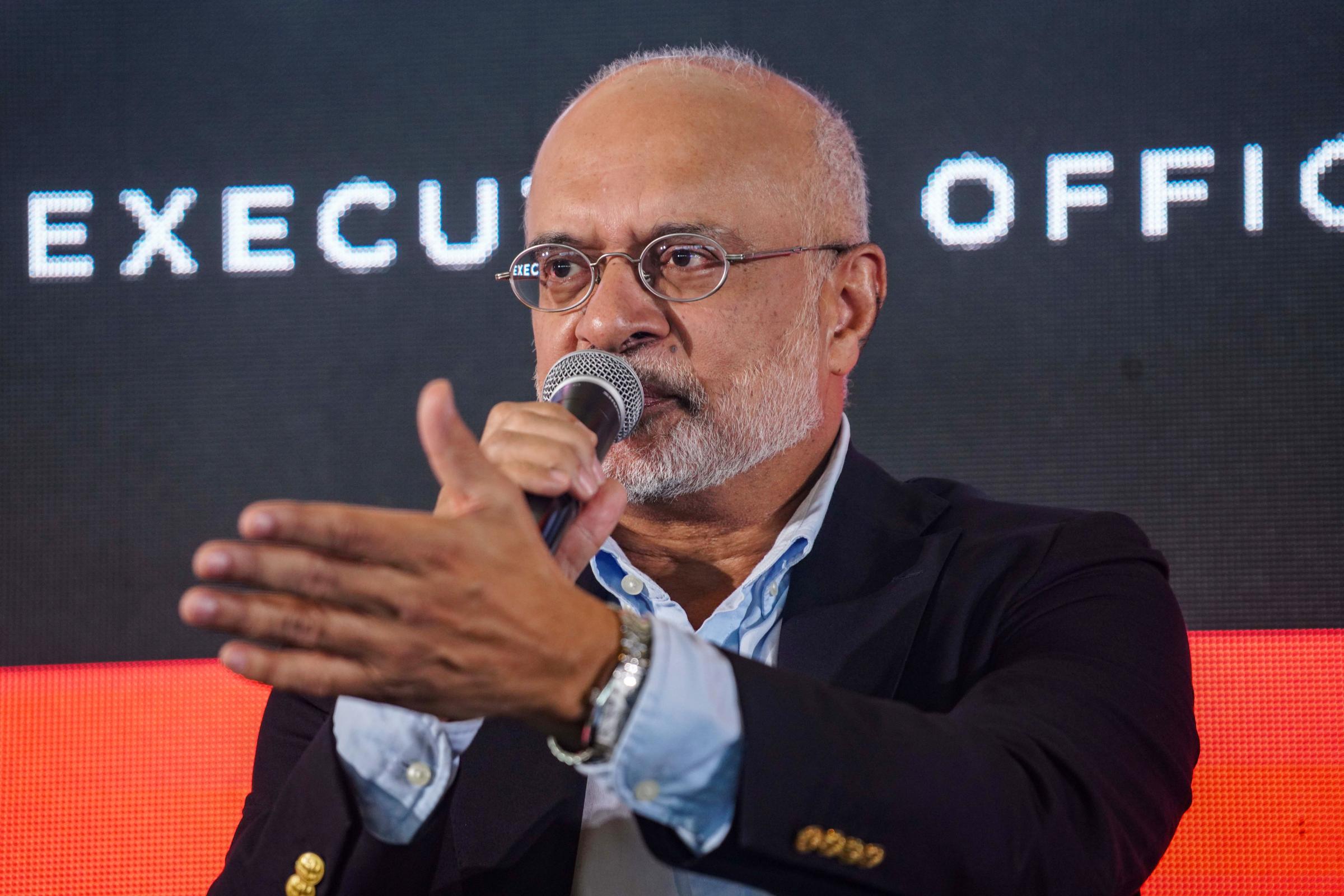
Piyush Gupta, CEO of Singapore-based multinational banking firm DBS, spoke on how companies’ green transition and sustainability efforts are likely to accelerate as a result of the pandemic and the instability the world is experiencing. Gupta said that transition has experienced setbacks, especially in the energy sector, where the Russian invasion of Ukraine has roiled fuel markets: “When you’re going into winter, and you have people who are not going to have energy for heating and food, then you start rethinking your posture on coal versus other possibilities.”
But, Gupta added that given these geopolitical tensions, leaders are likely to invest in diversifying their power sources to safeguard crucial energy supplies. He predicts that “even five years out, the pandemic and its consequences will accelerate the transition.”
Pardis Sabeti dedicates Impact Award to Mahsa Jina Amini
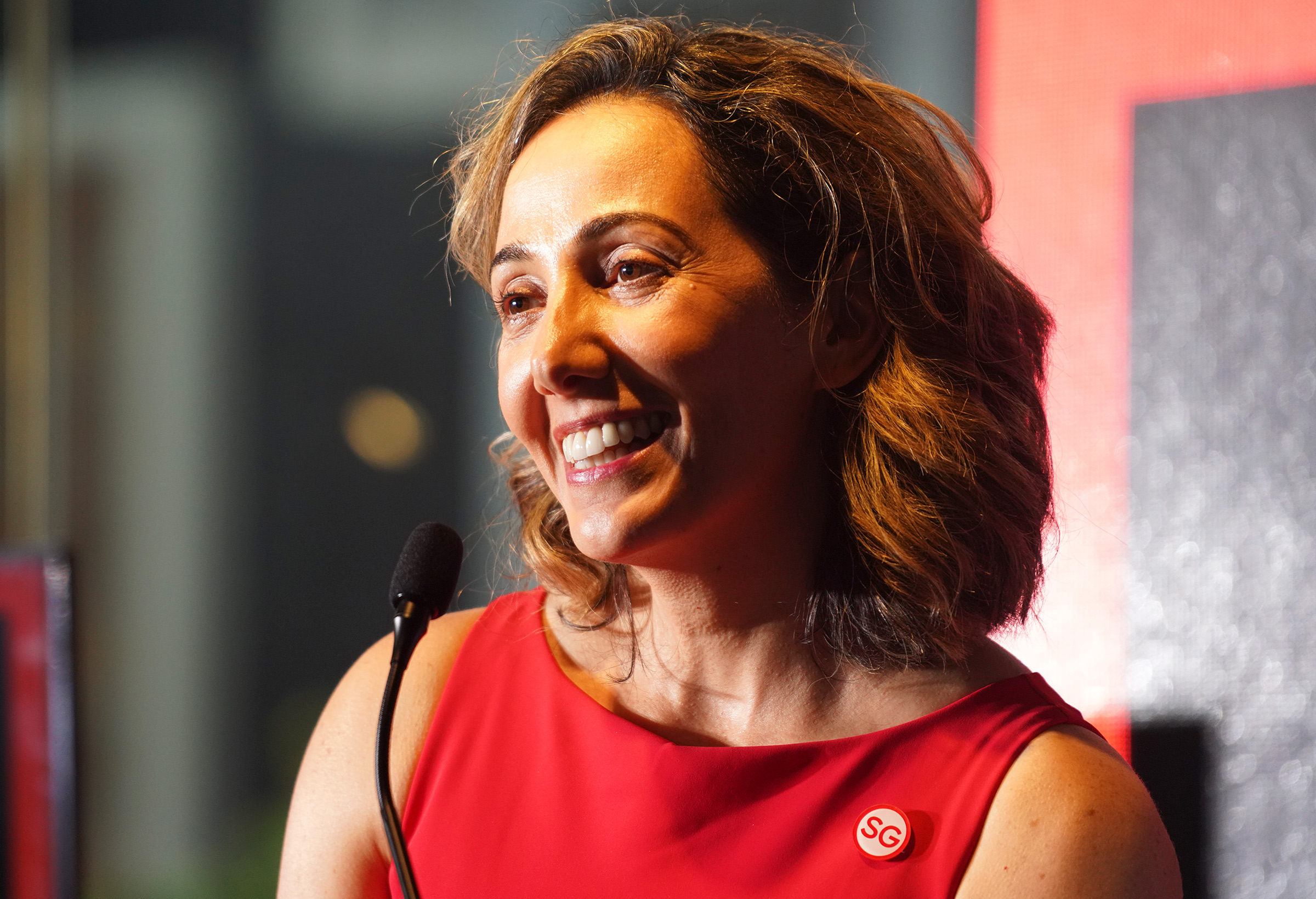
Computational geneticist Dr. Pardis Sabeti, a refugee of Iran, dedicated her award to Mahsa Jina Amini, the young Iranian woman who died on Sept. 16—three days after being arrested on a Tehran street by a “morality patrol,” whose officers are known for their brutal treatment of women who break the country’s strict rules on hijab-wearing.
“Mahsa Jina was a young Iranian woman of 22-years-old who had a passion for life, whose family and community adored her, and who was about to begin university for microbiology and one day medicine. Those are the fields of my own research and my own life. But her dream was unjustly cut short when she died unjustly in the custody of the Iranian morality police,” Sabeti said.
She called on other attendees to do what they can to help. “Those of you in government, in organizations, and I think the people in this room, who can help bring back the internet in Iran, please do everything you can. Every moment in darkness is a mortal threat to another young woman.”
The Singapore Grand Prix marks Asia’s reopening
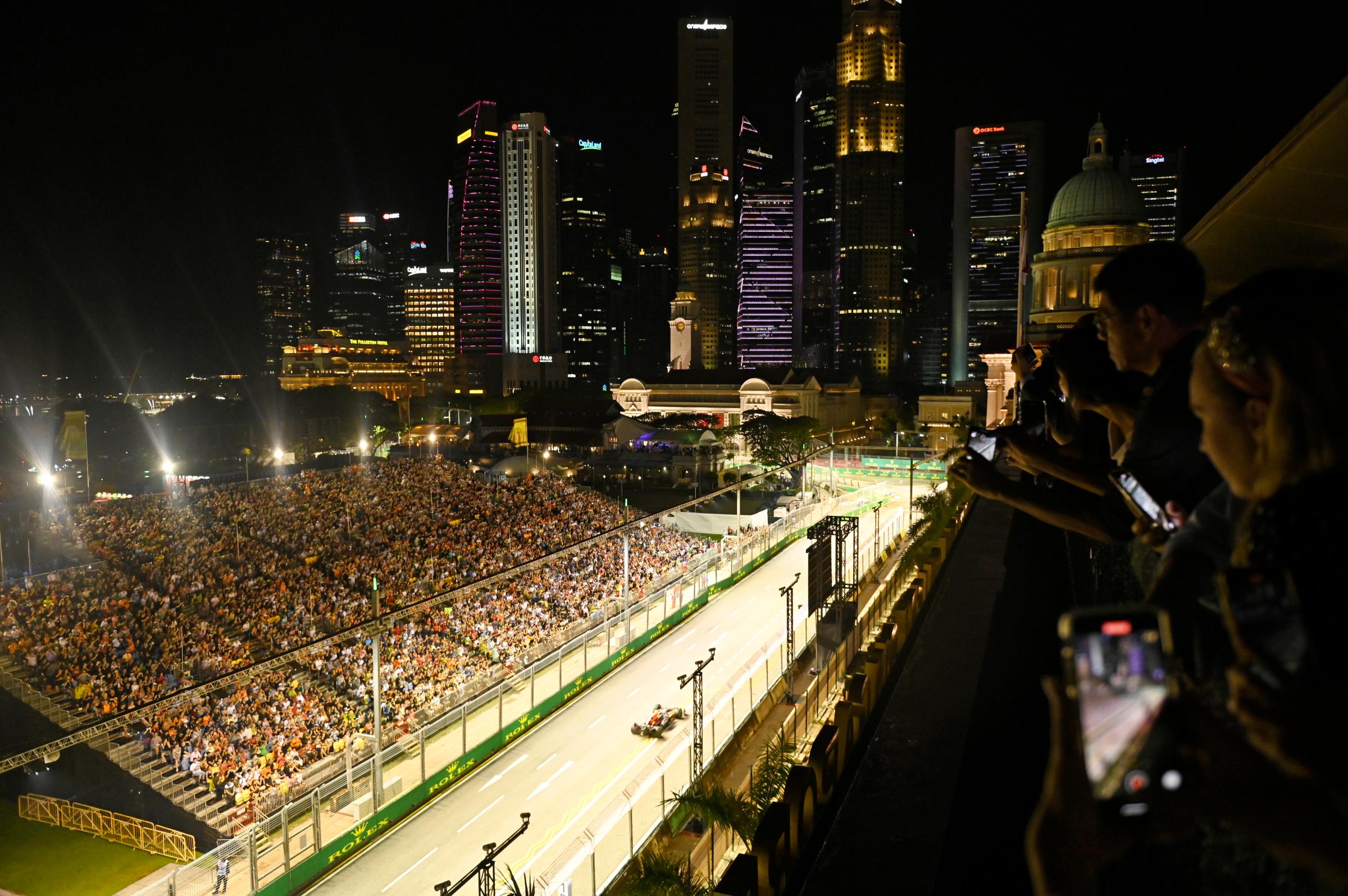
One of the most notable features of the TIME100 Impact Awards and TIME100 Leadership Forum was the environment where it took place. Following the events came a cocktail reception, which provided unparalleled views of the Singapore F1 Grand Prix racetrack below. The race, which returned to the city-state after a two-year hiatus because of the pandemic, drew a record-high attendance of more than 300,000 fans from all over the world.
Inside the Art restaurant, a long line formed to try out a race car simulator. On the restaurant’s balcony, guests mingled and discussed business and their favorite F1 drivers. Although a thunderous downpour delayed the race’s start, once drivers started circling the track all eyes were glued to the battle for the top spot between F1 superstars. Guests packed elbow to elbow along the restaurant’s balcony to watch the sparks fly as cars zoomed by.
—With reporting by Eloise Barry and Chad de Guzman
More Must-Reads from TIME
- Cybersecurity Experts Are Sounding the Alarm on DOGE
- Meet the 2025 Women of the Year
- The Harsh Truth About Disability Inclusion
- Why Do More Young Adults Have Cancer?
- Colman Domingo Leads With Radical Love
- How to Get Better at Doing Things Alone
- Michelle Zauner Stares Down the Darkness
Write to Amy Gunia at amy.gunia@time.com